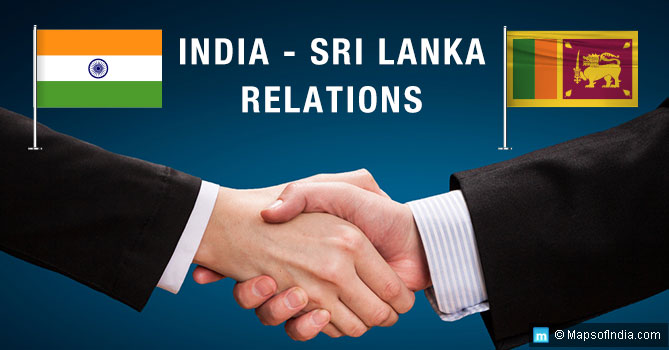NEW DELHI, Jan 6: India and Sri Lanka are looking forward for a further improvement to their bilateral relations and even better post-Covid co-operation, external affairs minister S Jaishankar said.
Speaking at a joint media briefing with his Sri Lankan counterpart Dinesh Gunawardena, in Colombo on Wednesday, Jaishankar said the Covid pandemic had not dented the relations between the two countries but had given the two sides an opportunity to work even more closely together.
“It hasn’t dented our bilateral cooperation but the virtual summit between our prime ministers was the watermark of our relationship last year,” he said, referring to the virtual summit between Prime Minister Narendra Modi and his Lankan counterpart Mahinda Rajapaksa in September.
“We are now looking at post-Covid cooperation and I carry back with me Sri Lanka’s interest in accessing vaccines from India,” he said.
Sri Lankan leadership formally requested Indian assistance to obtain the Covid vaccine during meetings with Jaishankar in Colombo.
Jaishankar is visiting Colombo over three months after the two prime ministers held the virtual summit during which the two sides agreed to further expand ties in a range of areas such as anti-terror cooperation, maritime security and trade and investment.
He also spoke on the need to ensure aspirations of the minority Tamils are addressed within a united Sri Lanka. “It is in Sri Lanka’s own interest that the expectations of the Tamil people, for equality, justice, peace and dignity, within a united Sri Lanka are fulfilled,” Jaishankar said. “That applies equally to commitments made by the Sri Lankan government on meaningful devolution of power and the 13th amendment to the Sri Lankan constitution,” which is an outcome of the 1987 India-Sri Lanka peace accord aimed at devolving more powers to the Tamils. Jaishankar made the remarks hours after he called on President Gotabaya Rajapaksa, and also held bilateral discussions with his counterpart, as part of his three-day visit that began on Tuesday. Consistent with New Delhi’s messaging on the Tamil question since the Rajapaksa came to power, the remarks coincide with a campaign among sections in Sri Lanka to abolish the provincial council system.
Gunawardena, in his statement, said the President had “firmly stated” his commitment to the well-being, progress and opportunity “to all our citizens – Sinhala, Tamil, Muslim and all”, he said.
Jaishankar, who was expected to meet the minister of fisheries Douglas Devananda, said he was looking forward to the early return of Indian fishermen detained in Lanka.
“We look forward to the early return of our fishermen from Sri Lanka,” Jaishankar said. Indian fishermen, apprehended in Sri Lanka for allegedly poaching in its territorial waters, were provided consular assistance by the Consulate General of India in Jaffna last week.
The high commission said it was in touch with the Sri Lankan Government to facilitate the early release of the detained fishermen.
India and Sri Lanka last week held through video conferencing a meeting of the joint working group on fisheries and discussed the issues related to fishermen and the ways to overcome challenges posed by the Covid-19 pandemic.
Fishermen from both countries are arrested frequently for inadvertently trespassing into each other’s waters. On his part, Sri Lankan Foreign Minister conveyed profound gratitude to Prime Minister Modi and the Indian government for the tremendous support India extended in the past several months to mitigate the adverse impact of the Covid pandemic.
“India’s Neighbourhood First Policy has made a positive impact on the health sector and economy during this period of unprecedented crisis,” Gunawardena said.
Earlier, the Sri Lankan Foreign Minister outlined the broad areas of their bilateral talks, including collaboration during the pandemic, trade and investment, maritime and fisheries. Jaishankar said India looked forward to post-COVID-19 collaboration with Sri Lanka, addressing both public health and economic aspects — including the prospect of vaccines — in addition to partnerships in sectors such as infrastructure and energy.
Acknowledging the immediate challenge of post-Covid-19 recovery, Jaishankar said India will “always be a dependable partner and a reliable friend” that is open to strengthening ties on the basis of “mutual trust, mutual interests, mutual respect and mutual sensitivity”.
“As we promote peace and well-being in the region, India has been strongly committed to the unity, stability and territorial integrity of Sri Lanka. Our support for the reconciliation process in Sri Lanka is long-standing, as indeed for an inclusive political outlook that encourages ethnic harmony,” he said.
The aspirations of Sri Lanka’s Tamil minority, a key political issue in the Indian state of Tamil Nadu, had also been raised by Prime Minister Narendra Modi in a virtual summit with his counterpart Mahinda Rajapaksa last September. At the time, the Indian side had called for the full implementation of the 13th amendment.
Rajapaksa and his brother, President Gotabaya Rajapaksa, have shied away from committing to full implementation of the amendment. They have also indicated they won’t go against the wishes of the Sinhala majority while working on any resolution in Tamil-inhabited areas.
Jaishankar said he and Gunawardena had discussed several proposals for cooperation in energy, infrastructure and connectivity, and the early implementation of such projects would help accelerate Sri Lanka’s recovery from the impact of the pandemic. He also promised a speedy follow-up to talks on possible Indian investments in special zones for manufacturing pharmaceuticals and tourism.
(Manas Dasgupta)

